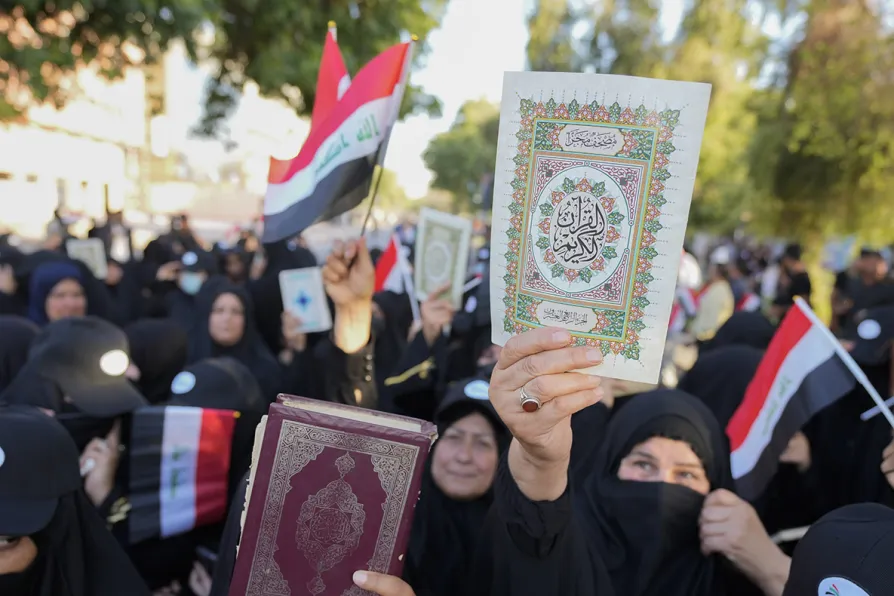Investigators says Ukraine may be behind the attack

 Protesters raise copies of the Quran in Baghdad, Iraq, during a protest against the holy book's burning in Denmark and Sweden, July 22, 2023
Protesters raise copies of the Quran in Baghdad, Iraq, during a protest against the holy book's burning in Denmark and Sweden, July 22, 2023
TENSIONS in Iraq flared again at the weekend over a series of recent protests in Europe involving the desecration of the Koran, which have sparked a debate over the balance between free expression and religious sensitivities.
Early on Saturday, hundreds of protesters tried to storm Baghdad’s heavily fortified Green Zone, which houses foreign embassies and the seat of the Iraqi government, following reports that an ultranationalist group had burnt a copy of the Koran in front of the Iraqi embassy in the Danish capital Copenhagen the previous day.
The protest took place two days after people angered by the planned burning of the Islamic holy book in Sweden stormed the country’s embassy in Baghdad.

The Morning Star's Danish sister paper ARBEJDEREN on when the people of Copenhagen triumphed over the occupying forces













